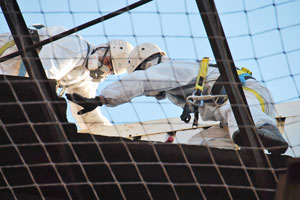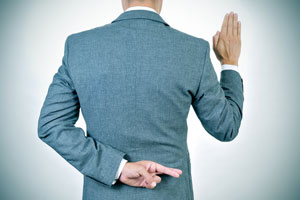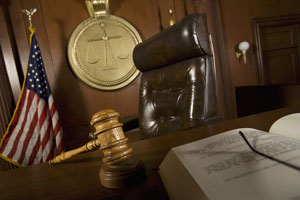The New Mexico Supreme Court has overturned the murder conviction of Truett Thomas and ordered a new trial because the trial court judge improperly allowed the prosecution’s expert witness to testify via Skype.
Truett Thomas’ Case
Thomas was charged with the murder of Guadalupe Ashford, whose body was found behind a trash can in a parking lot in 2010. It was determined that Ashford had been assaulted, suffering head injuries including a fractured skull and dislodged tooth. Police found blood on the scene that didn’t belong to Ashford and ran it through the Combined DNA Index System (CODIS). The blood was a match for Thomas. Thomas was arrested and charged on this DNA evidence, but denied knowing Ashford.
When Thomas’ case went to trial, the forensic analyst who had originally tested the blood had moved away. The prosecutor expressed concern over securing the presence of the forensic analyst and suggested that she be allowed to testify over Skype. When the court asked the defense counsel’s thoughts on allowing Skype testimony, the counsel responded, “I don’t like it, but I think it will work. . . . It’s just weird. She’s really just going to be there to establish the chain of custody, so she’s not—I mean, she’s important, obviously, for the State, but she’s not too important. I don’t really have a problem with Skyping it, as long as there’s no technical issues. If there’s technical difficulties, then they’re not going to be able to establish the chain of custody. Then it’s game over.”
However, at another hearing closer to trial, the defense counsel expressed concern about the Skype issue and stated that it might “cause a confrontation problem.” The district court judge allowed the testimony, ruling that the defendant had waived any objection to the Skype testimony through the earlier acquiescence.
Prosecution’s Expert Testifies by Skype
At trial, the prosecution called the forensic analyst to testify via Skype. Her image faced the jury, but she could only see the attorney questioning her. She could not see the defendant, the jury, nor the district court judge. The State had a second forensic scientist analyst testify in person; however, this analyst had not performed the DNA measurements, she had only interpreted the measurements made by the first absent analyst.
A jury found Thomas guilty of first-degree murder and first-degree kidnapping. He received consecutive sentences of life imprisonment for the murder and eighteen years for the kidnapping.
New Mexico Supreme Court Rules on Skype Testimony
Thomas made a motion for a new trial, based on additional DNA evidence and a social media post that the district court judge had made during his trial. He appealed his conviction to the New Mexico Supreme Court. The New Mexico Supreme Court found that the Skype testimony violated Thomas’ right to confront the witnesses against him, as guaranteed by the Sixth Amendment to the United States Constitution. The Sixth Amendment to the Unites States Constitution states, “[i]n all criminal prosecutions, the accused shall enjoy the right . . . to be confronted with the witnesses against him.” See U.S. Const. amend. VI.













